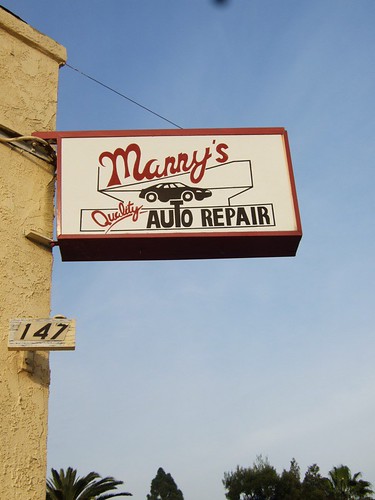Auto Repair Information You Can't Live Without
When dealing with car repairs, you might feel inadequate and you're completely lost and frustrated. Luckily, you have come to the right place. Continue reading to find out how you can get a better grasp of what to do when making repairs to your car. Ask all the questions you have at the shop. These questions should be geared around the problems that you faced and what actions you can take so that they will not happen again. Preventative measures will save you a whole lot of money in the long run. Test out your car before paying for its repairs. If you don't do this, it's possible that the problem isn't even fixed. Get a good battery charger to keep in your vehicle. People commonly experience dead batteries, making battery chargers good for helping stranded drivers. Make sure you know how to connect the charger to your battery. Be sure that the mechanic is experienced working on your model of vehicle. Basic components are usually the same, but things like hood space vary by brand. The safe route is to pay a little more to have a dealer's specialized techs work on the car. Talk to your mechanic about the rates that you will have to pay. There are many unscrupulous mechanics who are not upfront about their costs and policies. You must be able to tell how the repairs are being billed to you. Some shops will give an estimate on the repair time based on manufacturers guidelines. Some minor repairs could even be an all day job. Look on your dashboard for any hazard lights that go on. They're there for a reason. If you ignore them, you could end up with expensive problems down the road. When you take your car to the shop, ask plenty of questions about your vehicle. Make sure to consider previous problems you've had, and ask how to prevent them. Preventing issues with your vehicle is an excellent way to save money. Take photos of your car ahead of a visit to the garage. Most shops won't damage your vehicle, but you never know. Because of this, it is advisable to get proof of what you vehicle looked like before it goes to the shop, just in case. Take a second to read the manual and learn about the different components within your vehicle before visiting a mechanic. Know the difference between rebuilt and reconditioned, new, and salvage parts. New items have recently been made by the manufacturer. Buying a rebuilt or reconditioned part means the part has been damaged and fixed in the past. "Salvage" refers to used parts that aren't altered. Don't ignore minor issues you car is having, hoping they will go away on their own. Have it looked at. Often times, ignoring small issues lead directly to more serious ones. Referrals will lead you to a great mechanic. Ask friends, family or co-workers for recommendations. This will let you figure out what kind of price you're dealing with and if you'll be satisfied with the work that is done. You can use their experiences to determine whether a mechanic is honest or not. Sometimes a mechanic will recommend you do an engine flush, but this is not usually a required maintenance procedure. This is a costly service and not something that is typically done during the course of normal maintenance. Many people take their cars to get repaired and return to a car with additional issues. They do this to make you think you are getting a bargain. Don't make any hasty decisions; call around and find out if there aren't better deals to be had. Now you're armed with how to deal with auto repair! It is impossible to avoid all car repairs, but you will know better how to pick a mechanic or deal with minor repairs yourself. Keep reading to find out more about what you can do next time your car needs repairing. Take the time to read your car manual and know the basics of how your car works. You need to know the basics about your car prior to visiting with a mechanic. You may also find answers to your problems, inside.
Home »Unlabelled » Auto Repair Information You Can't Live Without






No comments:
Post a Comment